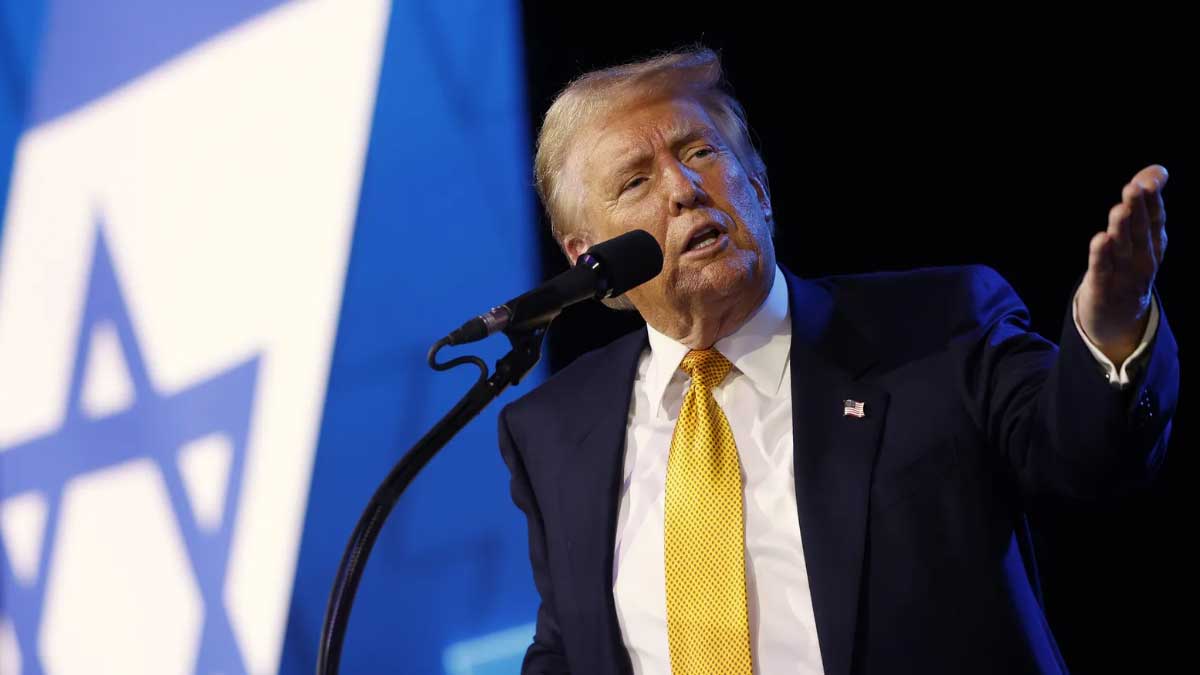- Home
- Billionaires
- Investing Newsletters
- 193CC 1000
- Article Layout 2
- Article Layout 3
- Article Layout 4
- Article Layout 5
- Article Layout 6
- Article Layout 7
- Article Layout 8
- Article Layout 9
- Article Layout 10
- Article Layout 11
- Article Layout 12
- Article Layout 13
- Article Layout 14
- Article Sidebar
- Post Format
- pages
- Archive Layouts
- Post Gallery
- Post Video Background
- Post Review
- Sponsored Post
- Leadership
- Business
- Money
- Small Business
- Innovation
- Shop
Recent Posts
Trump’s Election Case: New Evidence Emerges

In a significant development for former President Donald Trump’s federal election case, Special Counsel Jack Smith is expected to file a detailed brief this week, which could unveil new evidence regarding Trump’s efforts to overturn the results of the 2020 election. This brief, set to be filed in federal district court, aims to establish a comprehensive argument for Trump’s prosecution. However, Trump’s legal team has preemptively challenged the release of this brief, contending that it should not be permitted in its current form.
Following a Supreme Court ruling that granted Trump certain protections against criminal charges stemming from his official acts while in office, the federal election case is gaining momentum once again. The ruling stipulates that ex-presidents cannot face criminal prosecution for actions performed as part of their official duties. U.S. District Judge Tanya Chutkan is now tasked with determining the viability of the charges against Trump in light of this immunity ruling.
The Supreme Court’s decision has complicated matters, as Judge Chutkan will now consider how the immunity affects the charges being leveled against Trump. The court has permitted Smith to file a brief outlining the government’s case, which is designed to clarify the facts available for both Judge Chutkan and any appellate courts, including the Supreme Court, given that Trump is expected to appeal whatever ruling is made.
This brief, expected to reach 180 pages, will incorporate new categories of evidence, including grand jury transcripts that have not been previously disclosed. Smith’s intention is to ensure that the court is fully informed about the government’s case before any decisions are made regarding Trump’s immunity and the charges against him.
Trump’s legal team filed a motion on Monday arguing against the brief’s submission, asserting that it would be a “180-page false hit piece” that would irreparably taint the jury pool. They further contend that the brief is “fundamentally unfair” as it could lay out the government’s allegations before the election, depriving Trump of the opportunity to respond adequately. The defense argues that the court should first rule on immunity before allowing Smith to present what they perceive as a biased perspective.
Adding to the complexities, Trump’s legal representatives pointed out the existence of a gag order, which restricts Trump from publicly discussing the case. They argue that this order prevents Trump from responding to the claims made in Smith’s forthcoming brief, exacerbating the situation and raising questions about the fairness of the proceedings.
While the brief’s content remains largely undisclosed, it has been indicated that a substantial portion will contain sensitive material, necessitating redactions before public release. This raises questions about how much of the evidence will ultimately be available to the public.
In the coming days, Judge Chutkan is expected to make a ruling on Trump’s request to block Smith from filing the brief. Legal experts largely anticipate that she will side with the government, with some emphasizing that denying Smith the chance to present his case would be an egregious oversight. Should the judge rule in favor of Smith, he is required to submit the brief by Thursday evening, with Trump’s counter-response due by October 17.
The timeline for Trump’s election case remains uncertain, particularly given the ongoing legal disputes over which charges will withstand the Supreme Court’s immunity ruling. These discussions could prolong the case and possibly escalate to the Supreme Court. Furthermore, the case’s trajectory may be influenced by the outcome of the upcoming presidential election, especially if Trump were to reclaim the presidency, as he could appoint Justice Department officials who might choose to drop the charges against him.
As Smith prepares to present his case, Trump’s legal team has expressed concerns regarding the potential impact of the brief on the integrity of the legal process. They argue that allowing Smith to make a public statement filled with allegations could undermine the fairness of the proceedings, particularly in the context of Trump’s ongoing presidential campaign.
While the Supreme Court’s immunity ruling affirms that ex-presidents cannot be prosecuted for actions taken as part of their official duties, it does not grant them blanket protection from criminal prosecution for acts that fall outside their official capacity. Judge Chutkan’s forthcoming determinations will be crucial in delineating the boundaries of what can be pursued legally against Trump based on the updated indictment, which reframes Trump’s post-election conduct in terms of his actions as a private citizen and a candidate rather than as president.
In terms of legal strategy, Trump’s lawyers have criticized Smith’s intention to file the brief, arguing it contravenes established Department of Justice policies that discourage significant actions close to an election. They reference a federal statute that prohibits timing any legal action to influence elections and the DOJ’s informal “60-day rule,” which aims to avoid major investigative actions within two months of an election. However, legal scholars argue that once charges have been filed, the case transitions from the hands of investigators to the judicial system, thus making these policies less relevant.
Trump is currently facing four felony charges related to his actions following the 2020 election, which allege unlawful attempts to overturn the election results. These include pressures placed on state officials, attempts to persuade Vice President Mike Pence to withhold certification, and orchestrating efforts to submit false electors to Congress. As these proceedings unfold, the implications for Trump and his presidential aspirations remain profound, with ongoing litigation and potential appeals shaping the landscape of his legal challenges.
Recent Posts
Categories
- 193cc Digital Assets2
- 5G1
- Aerospace & Defense46
- AI37
- Arts3
- Banking & Insurance11
- Big Data3
- Billionaires449
- Boats & Planes1
- Business328
- Careers13
- Cars & Bikes76
- CEO Network1
- CFO Network17
- CHRO Network1
- CIO Network1
- Cloud10
- CMO Network18
- Commercial Real Estate7
- Consultant1
- Consumer Tech180
- CxO1
- Cybersecurity68
- Dining1
- Diversity, Equity & Inclusion4
- Education7
- Energy8
- Enterprise Tech29
- Events11
- Fintech1
- Food & Drink2
- Franchises1
- Freelance1
- Future Of Work2
- Games141
- GIG1
- Healthcare78
- Hollywood & Entertainment186
- Houses1
- Innovation42
- Investing2
- Investing Newsletters4
- Leadership65
- Lifestyle11
- Manufacturing1
- Markets20
- Media193
- Mobile phone1
- Money13
- Personal Finance2
- Policy567
- Real Estate1
- Research6
- Retail1
- Retirement1
- Small Business1
- SportsMoney33
- Style & Beauty1
- Success Income1
- Taxes2
- Travel10
- Uncategorized8
- Vices1
- Watches & Jewelry2
- world's billionaires418
Related Articles
Trump Moves $4B Stake in Truth Social Parent, Stock Drops 6%
Donald Trump recently transferred his 57% stake in Trump Media & Technology...
By 193cc Agency CouncilDecember 20, 2024House Rejects Trump-Backed Funding Bill, Shutdown Looms
The U.S. House of Representatives rejected a new government funding bill on...
By 193cc Agency CouncilDecember 20, 2024Trump Named Time’s Person of the Year for Second Time
On Thursday, Time magazine honored Donald Trump as its “Person of the...
By 193cc Agency CouncilDecember 12, 2024Meta Donates $1 Million to Trump’s Inaugural Fund
Meta, the parent company of Facebook and Instagram, has confirmed a $1...
By 193cc Agency CouncilDecember 12, 2024















Leave a comment